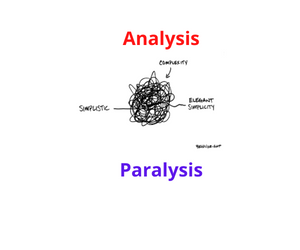This week a short tour de horizon of news that will, I hope, point the way forward and help you make sense of what is happening in the digital space. All comments and feedback really welcome. Is a weekly “5 things I learned” useful or not? Or a longer piece on a specific topic? Please comment, like and share.
Is Bitcoin a scam or not? Well, Jamie Dimon of JP Morgan thinks it is, which in and of itself is enough to start a debate. My take is that it is like art, it is worth what somebody is willing to pay for it and less certain as a store of value than fiat currencies, which have our governments and central banks behind them. Some in my network disagree, suggesting that BTC has scarcity with no implied bailout, adding value. Yes, valid points indeed. Today though, asking to pay in BTC has the same challenge as the Rolling Stones offering to pay in USD for their recent stay at the Dolder Grand Hotel in Zurich. The Dolder will take the money, but at discounted rate because they would have the challenge aka market risk of swapping USD to CHF. With the Stones hotel bill, that is a lot of market risk.
A small side note; Jamie Dimon also said he would fire any trader he caught trading Bitcoin for stupidity. First off, it would be the thin end of a long wedge if we fired bankers for stupidity and Jamie is dead wrong on this one. Traders live for assets to trade that have volatility; BTC is a wet dream for a trader.
Don’t confuse ICO mania with the value of DLT aka Blockchain: There is a certain whiff of tulip mania to some of the ICO activity. Unheard of organisations collecting double digit millions based on little more than saying “We want your money. We might do this, or that, but we don’t know yet.” Caveat emptor is all I can say. If you put money in those things and lose it, hard luck.
Same rules apply: The Chinese have cracked down on ICOs, as to, closer to home, has the Swiss regulator. There is a saying that you can either ask for permission or for forgiveness. In the world of finance and taking people’s money, the rules have not changed; you need permission, even if that permission is in the form of a “no action letter”, in other words an ok to do what you want to do.
A point worth noting with all this ICO activity and new digital exchanges springing up, is around new rules. Best execution and MiFID II dictate a lot of new requirements about understanding client risk awareness and risk experience; in simple terms, you have to have a riskiness scale, let’s call it 1 to 10 of riskiness, then you need to have set a level of risk on that scale for each customer and for each instrument. If the client is rated for 5, then 6 and up are not going in that basket. These ICO things are Spinal Tap; they go up to 11. Even if the instrument is suitable, there are a lot of obligations to keep records to show best execution. A recent article sets out the challenge.
There is value to be sure: I was usefully reminded by my good friend Brad Hall, CEO of ICON, that in matters DLT / Blockchain we are at about the same point on the evolutionary curve that the Internet was at when Tim Berners-Lee invented the World Wide Web. Two companies where there is a concentration of brainiacs and proven money makers are doing some things of real note. At Partners Group, they are looking at the use of DLT to help record private equity investments. All sorts of benefits around privacy, secure record keeping and so on. SETL, the DLT venture led by the enormously capable Peter Randall is trying to do same for other types of funds.
Order is needed: In a recent article, a senior Deutsche Bank executive comments that: “Implementation also needs understanding, recognition, and approval by regulators which will evolve over time.” He also cited the three ingredients for DLT success: central bank liquidity, commercial bank liquidity and a single place where there could be a multi-jurisdictional transfer of assets. Here in Switzerland, the nascent Crypto Valley Association wisely called for the establishment of code of conduct in the space.
Lessons to be Learned
The gold rush that is DLT & ICO will attract its share of conmen and snake oil salesmen. Fools will no doubt rush in, pumping money into spurious ICOs.
The sooner we have a code of conduct, the better. That will help to limit and marginalise the bad actors.
We also need to see a concentration among a few protocols; the value of this is in cross-border, cross-jusrisdiction, multi-currency capability.
About the Author: I help banks master their post trade processing; optimising, re-engineering, building.
I understand the front-to-back and end-to-end impact of what banks do. That allows me to build the best processes for my clients; ones that deliver on the three key dimensions of Operations: control, capacity and cost.
Previous Posts
Are available on the 3C Advisory website, click here.
Publications
The Bankers’ Plumber’s Handbook
Control in banks. How to do operations properly.
For some in the FS world, it is too late. For most, understanding how to make things work properly is a good investment of their time.
My book tries to make it easy for you and includes a collection of real life, truestories from nearly 30 years of adventures in banking around the world. True tales of Goldman Sachs and collecting money from the mob, losing $2m of the partners’ money and still keeping my job and keeping an eye on traders with evil intentions. 
So you might like the tool kit, you might like the stories or you might only like the glossary, which one of my friends kindly said was worth the price of the book on its own. Or, you might like all of it.
Go ahead, get your copy!
Hard Copy via Create Space: Click here
Kindle version and hard copy via Amazon: Click here
Cash & Liquidity Management
An up to date view of the latest issues and how BCBS guidance that came into force from Jan 1 2015 will affect this area of banking. Kindle and hard copy.
Hard Copy via Create Space: Click here
Amazon UK: Click here
Amazon US: Click Here
Share on:



